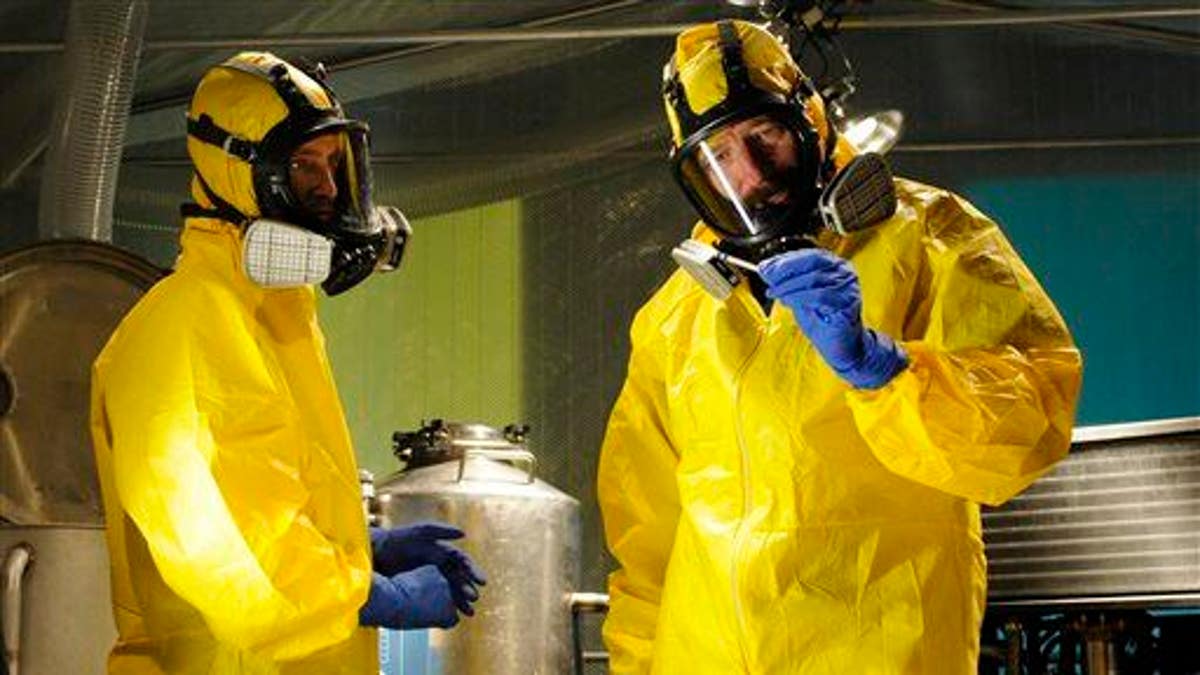
Jesse Pinkman, played by Aaron Paul, left, and Walter White, played by Bryan Cranston, cooking meth in a home being fumigated in the fifth season of "Breaking Bad." (AP Photo/AMC, Ursula Coyote)
Which comes first, the hard drugs or the criminal behavior? Researchers asked essentially that in a study just published in the journal Psychopharmacology in which they investigate whether cocaine and meth use might hamper moral judgment on a neurological level.
The short answer is probably, though further research is required. To test this, the researchers took down the biographies of 131 cocaine and meth users and 80 non-users incarcerated in prisons in New Mexico and Wisconsin and scanned their brains during moral decision-making tasks.
Drug users showed abnormal neural activity in the frontal lobes and limbic regions of the brains compared to non-users. One researcher notes in an opinion piece in Psychopharmacology that future treatment could involve targeting these regions.
"Although further research into the connectivity of systems in stimulant use is needed, this provides promising initial understanding of fronto-limbic deficits in stimulant users," one researcher says.
In fact, lifetime stimulant users exhibited less activity in their amygdala, which is an area that helps to regulate and understand emotions. And the longer people had been using stimulants, the less activity was observed in the anterior cingulate cortex, an area that "coordinates reinforcement, effect and executive action needed in moral decision making," they report in ScienceDaily.
Still, it's possible that people who are prone to stimulant use already struggle with moral processing even before turning to the drugs. (See how this 4-month-old got high on cocaine.)
This article originally appeared on Newser: Cocaine, Meth Can Mess With Your Morals
More From Newser
